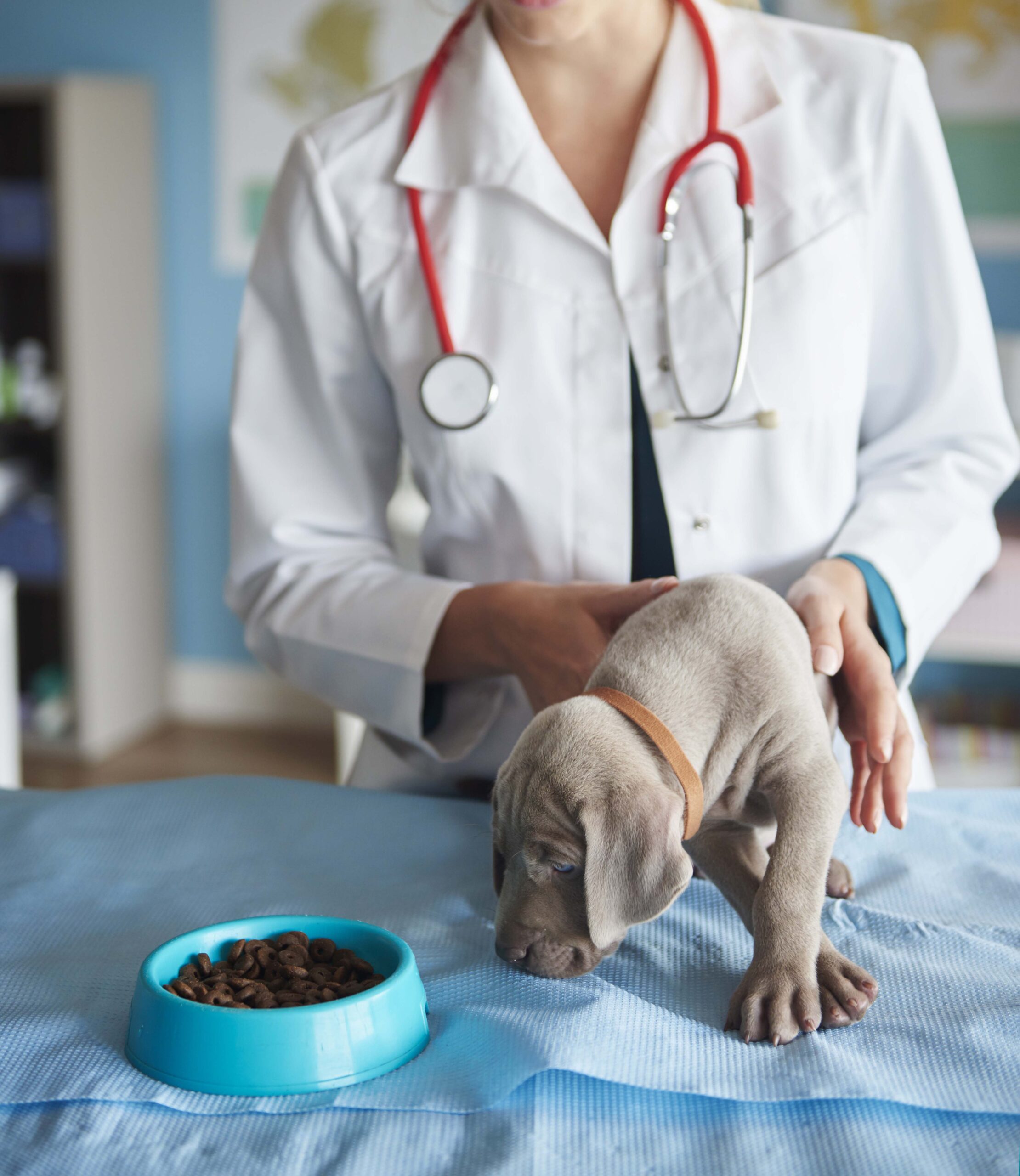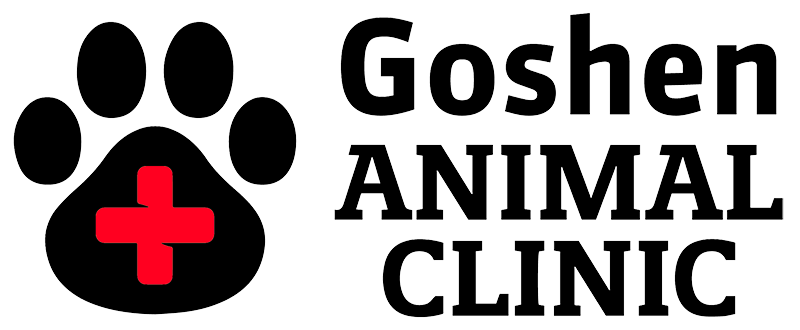PET Nutritional Counseling
Every pet’s nutritional needs are different, making feeding them more complicated than it seems.
You are what you eat, and so is your pet! Preventative care starts with food
Have questions or concerns regarding your pet’s nutrition? Schedule an appointment with our Goshen Animal Clinic nutrition expert today.
The Dangers of Pet Obesity
Roly-poly dogs and cats may look cute, but they’re at risk for some potentially dangerous health conditions. These conditions can lessen their quality of life and even shorten their lifespan.
Potential health risks include:
- Diabetes
- Osteoarthritis
- Breathing problems
- Heart disease
- Digestive problems
- Cancer
- Liver disease

What Causes Pet Obesity?
Statistics show that pet obesity is on the rise. But why? Often, pets become obese for the same reasons people do: lack of exercise and overeating food. Pets who are spayed or neutered also tend towards obesity. As pets grow older, they may not be able to exercise how they used to and often gain weight. Whatever the cause, you need to know that your pet can lose weight with help from your veterinarian.
Treating and Preventing Pet Obesity
We know you love your pet and want to give them their best life. By taking some simple steps, you can help prevent obesity in pets who aren’t overweight and treat it in those who are.
- The first step in treating and preventing pet obesity is to discuss your pet’s diet with your veterinarian. Note the types and amounts of food and treats your pet eats. Ask your veterinarian for recommendations for starting–or keeping–your pet on a diet specific to their breed, age, and activity level.
- Don’t underestimate the importance of exercise for pets. Most dogs benefit from regular walks, as well as active playtime. Although cats have a reputation for laziness, they need exercise, too! Try playing with your cat for 10 to 15 minutes each day.
- Get health conditions under control. Some health conditions, like hypothyroidism and Cushing’s disease, can cause weight gain in pets. It’s important for you to work closely with your veterinarian to manage these medical issues.
If you’re concerned about obesity in your pet, our knowledgeable staff can help you create an individualized health plan. Call us today at (502) 228-1827 to schedule an appointment.
